Army
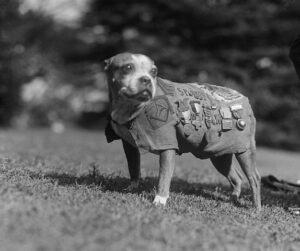 One day in 1917, a stray pit bull mix wandered onto the Yale University campus. Normally this would have meant a call to the local dog pound, but the dog rather attached himself to members of the 102nd Infantry Regiment, who were training at the school that day. While it was a bit unorthodox, the lost pup fit right in. He “volunteered” to participate in drills and quickly learned to salute with his right paw. He really seemed to want to enlist in the Army. The antics and intelligence of the dog quickly won the heart of Private James Robert Conroy, who decided to adopt the dog. He named the dog Stubby, because of his short, stubby tail. When it came time for the unit to ship out, Private Conroy couldn’t leave Stubby behind, so he smuggled him on board the troop ship. As they were getting off the ship in France, he hid Stubby under his overcoat…somehow without detection again. When Conroy’s commanding officer finally did discover Stubby, there might have been trouble, but Stubby saluted him, just as he had been trained to in camp, and the commanding officer couldn’t resist. He allowed the dog to stay on board.
One day in 1917, a stray pit bull mix wandered onto the Yale University campus. Normally this would have meant a call to the local dog pound, but the dog rather attached himself to members of the 102nd Infantry Regiment, who were training at the school that day. While it was a bit unorthodox, the lost pup fit right in. He “volunteered” to participate in drills and quickly learned to salute with his right paw. He really seemed to want to enlist in the Army. The antics and intelligence of the dog quickly won the heart of Private James Robert Conroy, who decided to adopt the dog. He named the dog Stubby, because of his short, stubby tail. When it came time for the unit to ship out, Private Conroy couldn’t leave Stubby behind, so he smuggled him on board the troop ship. As they were getting off the ship in France, he hid Stubby under his overcoat…somehow without detection again. When Conroy’s commanding officer finally did discover Stubby, there might have been trouble, but Stubby saluted him, just as he had been trained to in camp, and the commanding officer couldn’t resist. He allowed the dog to stay on board.
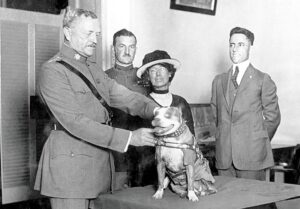
Stubby was a soldier all the way. He didn’t enlist to sit around and do nothing. While in France, in the trenches, Stubby was exposed to mustard gas. “Mustard gas or sulfur mustard is a chemical compound belonging to the sulfur-based family of cytotoxic and blister agent chemical warfare agents known as sulfur-mustards or mustard agents. The name mustard gas is widely used, but it is technically incorrect: the substance does not actually vaporize into a gas, but instead disperses as a fine mist of liquid droplets.” After Stubby recovered, he returned to the frontlines with his own specially-designed gas mask. The exposure to the mustard gas, combined with a dog’s heightened sense of smell, allowed Stubby to warn the 102nd of imminent poison gas attacks. Stubby also learned how to locate wounded soldiers during patrols, a very important part of his job. While technically a mascot, Stubby earned the rank of sergeant after he spotted a German spy and attacked the stunned man until reinforcements arrived. In his 18 months of service, Stubby participated in 17 battles, survived a series of wounds, and provided a much-needed boost to the morale of his fellow soldiers.
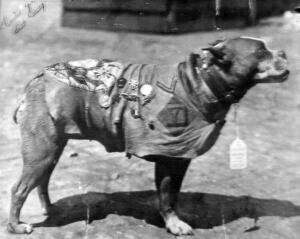
When World War I was over, Sergeant Stubby, as a decorated hero made his way back to the United States with Conroy. By this time, the dog now outranked his owner, and had become a national icon. Sergeant Stubby was invited to lead parades and was given awards until his death in 1926. Stubby died in his sleep on March 16, 1926. After his death he was preserved via taxidermy and his cremains were sealed inside of the mount. In 1956, Conroy decided to present Stubby to the Smithsonian. The taxidermy mount of the dog is part of the permanent collection at the Smithsonian National Museum of American History. It is currently on display in their “Price of Freedom: Americans at War” exhibit.
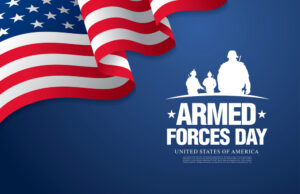 Originally, in the United States, each branch of the service had their own day to celebrate their service, but on August 31, 1949, Defense Secretary Louis Johnson announced the creation of an Armed Forces Day to replace separate Army, Navy, Air Force, Marine Corps, and Coast Guard Days. There was a good reason for it. The combination coincided with the unification of the three branches of the service under one agency…the Department of Defense. Man countries have an Armed Forces Day, and they are all done a little differently. In the United States, Armed Forces Day is celebrated on the third Saturday in May, which is near the end of Armed Forces Week, which begins on the second Saturday of May and ends on the third Sunday of May, or the fourth Saturday if the month begins on a Sunday, such as in 2016. Following the creation of Armed Forces Day in 1949, the holiday was first observed on May 20, 1950.
Originally, in the United States, each branch of the service had their own day to celebrate their service, but on August 31, 1949, Defense Secretary Louis Johnson announced the creation of an Armed Forces Day to replace separate Army, Navy, Air Force, Marine Corps, and Coast Guard Days. There was a good reason for it. The combination coincided with the unification of the three branches of the service under one agency…the Department of Defense. Man countries have an Armed Forces Day, and they are all done a little differently. In the United States, Armed Forces Day is celebrated on the third Saturday in May, which is near the end of Armed Forces Week, which begins on the second Saturday of May and ends on the third Sunday of May, or the fourth Saturday if the month begins on a Sunday, such as in 2016. Following the creation of Armed Forces Day in 1949, the holiday was first observed on May 20, 1950.
In his speech proclaiming the day as Armed Forces Day, on February 27, 1950, President Truman stated, “Armed Forces Day, Saturday, May 20, 1950, marks the first combined demonstration by America’s defense  team of its progress, under the National Security Act, toward the goal of readiness for any eventuality. It is the first parade of preparedness by the unified forces of our land, sea, and air defense.” Of course, there is more to planning a holiday that a day and a speech. The first Armed Forces Day was celebrated by parades, open houses, receptions, and air shows. The longest continuously running Armed Forces Day Parade in the United States is held in Bremerton, Washington.
team of its progress, under the National Security Act, toward the goal of readiness for any eventuality. It is the first parade of preparedness by the unified forces of our land, sea, and air defense.” Of course, there is more to planning a holiday that a day and a speech. The first Armed Forces Day was celebrated by parades, open houses, receptions, and air shows. The longest continuously running Armed Forces Day Parade in the United States is held in Bremerton, Washington.
There were a few glitches, however. The unique training schedules of the National Guard and Reserve units make the specific Saturday celebration difficult for these branches, so they have adapted to celebrate Armed Forces Day/Week over any period in the month of May. Every nation needs to celebrate the military forces. Where would we be without a strong military. As President Truman said, “It is vital to the security of the nation and to the establishment of a desirable peace.”
Each year, Armed Forces Day theme is different, because of course, each year more and more has changed. The very first theme was “Teamed for Defense.” Over the years, other themes have included Appreciation of a Nation; Arsenal of Freedom and Democracy; Dedication and Devotion; Deter if Possible, Fight if Necessary; 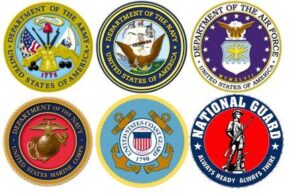 Freedom; Freedom Through Unity; Guardians of Peace; Lasting Peace; Liberty; and Patriotism. In Washington DC, 10,000 troops of all branches of the military, cadets, and veterans marched past the president and his party. In New York City, an estimated 33,000 participants initiated Armed Forces Day “under an air cover of 250 military planes of all types.” Today, Armed Forces Day is celebrated in American communities and on military bases throughout the world with parades, picnics, shopping discounts, festivals, and parties. On May 19, 2017, President Donald Trump reaffirmed the Armed Forces Day holiday, marking the 70th anniversary since the creation of the Department of Defense.
Freedom; Freedom Through Unity; Guardians of Peace; Lasting Peace; Liberty; and Patriotism. In Washington DC, 10,000 troops of all branches of the military, cadets, and veterans marched past the president and his party. In New York City, an estimated 33,000 participants initiated Armed Forces Day “under an air cover of 250 military planes of all types.” Today, Armed Forces Day is celebrated in American communities and on military bases throughout the world with parades, picnics, shopping discounts, festivals, and parties. On May 19, 2017, President Donald Trump reaffirmed the Armed Forces Day holiday, marking the 70th anniversary since the creation of the Department of Defense.

 My husband’s Uncle Butch Schulenberg is such a sweet man. Bob and I went up to Forsyth, Montana a couple of years ago, and Uncle Butch was so gracious and kind to show me so many pictures of himself and his family. They were pictures we had never seen before, and it was such a treat to receive them, along with the stories that went along with them. Uncle Butch is my father-in-law, Walt Schulenberg’s half-brother by their dad’s second marriage, and to me, he is such a precious part of the family. His is loving and kind, and he is a man of integrity and honor.
My husband’s Uncle Butch Schulenberg is such a sweet man. Bob and I went up to Forsyth, Montana a couple of years ago, and Uncle Butch was so gracious and kind to show me so many pictures of himself and his family. They were pictures we had never seen before, and it was such a treat to receive them, along with the stories that went along with them. Uncle Butch is my father-in-law, Walt Schulenberg’s half-brother by their dad’s second marriage, and to me, he is such a precious part of the family. His is loving and kind, and he is a man of integrity and honor.
Uncle Butch, like many of the young men of his era served honorably in the Army after high school, and was one of the lucky guys who got to be stationed in Hawaii part of that time. He did find out that not all of Hawaii is a tropical paradise, when he got to go up to one of the high peaks that are between 10,000 and 13,000 feet, and are the only places where Hawaii gets snow every year. Butch tells me that it was absolutely freezing while they were up there. Yikes!! I had no idea. Still, knowing Butch as I have come to, I know that the views he had while he was in Hawaii were spectacular, and some that he cherishes still today. Butch loves the outdoors, and takes lots of walks near his home. He probably has the best view in Forsyth, Montana, especially if, like Butch, you love taking pictures of sunrises and sunsets. His home overlooks the Yellowstone River, and the sun sets on the horizon behind the river view…making for a spectacular image.
Butch married Charlys Stull on June 25, 1966 and their marriage was blessed with three children, Tadd, Andi Kay, and Heath. They also have seven grandchildren. Their marriage has been blessed with many wonderful years, and is still going strong. They love to travel around, and especially to go visit their children and grandchildren. Butch is also a very strong supporter of the local school teams, and knows the players 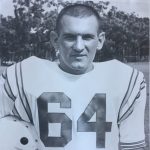
 personally. Forsyth is a small town, so most people know each other, and Butch is well known as an encourager of the teams. What a wonderful way to be known. Of course, I know just how they feel, because Butch is that way with everyone, and I have been privileged to receive his words of praise many times over my writing…something that blesses me more than he could possibly know. Today is Uncle Butch’s 80th birthday. Happy birthday Uncle Butch!! Have a great day!! We love you!!
personally. Forsyth is a small town, so most people know each other, and Butch is well known as an encourager of the teams. What a wonderful way to be known. Of course, I know just how they feel, because Butch is that way with everyone, and I have been privileged to receive his words of praise many times over my writing…something that blesses me more than he could possibly know. Today is Uncle Butch’s 80th birthday. Happy birthday Uncle Butch!! Have a great day!! We love you!!

 There are certain people who fit in your family from the moment they join it. My niece, Dustie Masterson, who married my nephew Rob Masterson on January 18, 2003 is one of those people. Rob and Dustie met when he was in the Army, and was in Louisiana. It didn’t take them very long to realize that they were in love and that they were perfect for each other. When they returned to Casper, Wyoming where Rob’s family all live, the family liked Dustie immediately. She was sweet, helpful, kind, and most of all, she was very much in love with and loyal to Rob. That goes a long way toward endearing a person to their spouse’s family.
There are certain people who fit in your family from the moment they join it. My niece, Dustie Masterson, who married my nephew Rob Masterson on January 18, 2003 is one of those people. Rob and Dustie met when he was in the Army, and was in Louisiana. It didn’t take them very long to realize that they were in love and that they were perfect for each other. When they returned to Casper, Wyoming where Rob’s family all live, the family liked Dustie immediately. She was sweet, helpful, kind, and most of all, she was very much in love with and loyal to Rob. That goes a long way toward endearing a person to their spouse’s family.
Dustie and Rob’s favorite place to be was always together. It didn’t really matter where. That is such an interesting thought now, years later, when the two of them work together in different areas of the local Sam’s Club. Not everyone has the ability or the opportunity to work at the same place as their spouse, but Dustie and Rob even got hired at the same time. Now, they get to work together sometimes, and on opposite shifts at other times, but either way, they work at the same place, and are part of the same team. They are both supervisors in their areas now, and the people they work with count on them to keep things running smoothly.
Dustie and Rob have three children together, Raelynn, Matthew, and Audrianna, as well as Rob’s daughter from his first marriage, Christina. Their lives are so full of joy and happiness. They love their family, and their extended family. They are always willing to help others. Dustie stepped in during the years that we took care of our parents, and even though they were her grandparents by marriage, she loved them like they were her own. 
 She ran errands for us, helped out with meals and care, and visited, which we all know is vital when it comes to helping people feel good about life. Dustie is such a pleasant person too. She is light-hearted and fun, and she doesn’t mind being a little bit silly sometimes. So, seriously, what’s better than that…let’s face it, nothing. That’s what I really like about Dustie. Her little bit sweet, little bit silly personality. Today is Dustie’s birthday. Happy birthday Dustie!! Have a great day!! We love you!!
She ran errands for us, helped out with meals and care, and visited, which we all know is vital when it comes to helping people feel good about life. Dustie is such a pleasant person too. She is light-hearted and fun, and she doesn’t mind being a little bit silly sometimes. So, seriously, what’s better than that…let’s face it, nothing. That’s what I really like about Dustie. Her little bit sweet, little bit silly personality. Today is Dustie’s birthday. Happy birthday Dustie!! Have a great day!! We love you!!
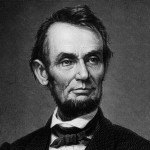
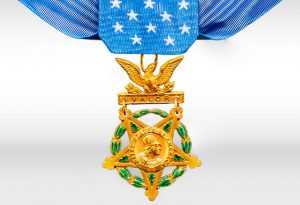 In a war, there are many heroes…some whose acts of courage and selflessness were so amazing that many felt they needed to receive a different medal…one that paid homage to the incredible things they did. Often these medals were even given posthumously because the brave act of the hero, cost the recipients their lives. Before 1861, no such medal existed. President Abraham Lincoln didn’t think that was right. There were many brave soldiers, and while not all brave acts would qualify for the medal of honor, the most self sacrificing of them would…the ones who set aside their own safety to protect the lives of others.
In a war, there are many heroes…some whose acts of courage and selflessness were so amazing that many felt they needed to receive a different medal…one that paid homage to the incredible things they did. Often these medals were even given posthumously because the brave act of the hero, cost the recipients their lives. Before 1861, no such medal existed. President Abraham Lincoln didn’t think that was right. There were many brave soldiers, and while not all brave acts would qualify for the medal of honor, the most self sacrificing of them would…the ones who set aside their own safety to protect the lives of others.
For that reason, President Abraham Lincoln signed into law a measure calling for the awarding of a US Army Medal of Honor, in the name of Congress, “to such noncommissioned officers and privates as shall most distinguish themselves by their gallantry in action, and other soldier-like qualities during the present insurrection.” The previous December, Lincoln had approved a provision creating a US Navy Medal of Valor, which was the basis of the Army Medal of Honor created by Congress on July 12, 1862. War puts men and women into situations whereby the only choices are kill or be killed. That can be a scary proposition. These soldiers do not do what they do in order to receive a medal. In fact, a medal rarely crosses their minds at all. The first US Army soldiers to receive what would become the nation’s highest military honor were six members of a Union raiding party who in 1862 penetrated deep into Confederate territory to destroy bridges and railroad tracks between Chattanooga, Tennessee, and Atlanta, Georgia.
In 1863, the Medal of Honor was made a permanent military decoration available to all members, including commissioned officers, of the US military. It is conferred upon those who have distinguished themselves in actual combat at risk of life beyond the call of duty. Since its creation, during the Civil War, more than 3,400 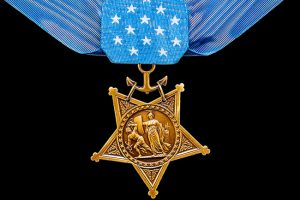
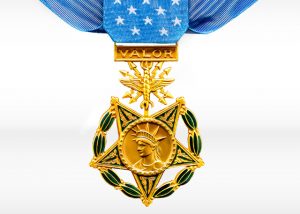 men and one woman, Dr Mary Walker, have received the Medal of Honor for heroic actions in US military conflict. These people gave whatever it took to perform their duties. They were the best of the best, and the medal of honor was the best honor we could bestow on them. Of course, in Lincoln’s time, there was no air force, so that medal came later, as did the medals from the other branches of service, including the Coast Guard.
men and one woman, Dr Mary Walker, have received the Medal of Honor for heroic actions in US military conflict. These people gave whatever it took to perform their duties. They were the best of the best, and the medal of honor was the best honor we could bestow on them. Of course, in Lincoln’s time, there was no air force, so that medal came later, as did the medals from the other branches of service, including the Coast Guard.
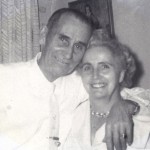 My grandfather, George Byer was a man of gentle strength. Many people may not think those to traits go together, but in him they did. He was always a hard-working man, who gave his all to support his family, but maybe the gentleness came partly from the fact that he had 9 children, 7 of whom were girls. That can make a man understand that girls are often the fairer gender, at least in those days. Grandpa Byer lived in a time when the women stayed home and raised the family and the men went out and made the living…even if that meant working long hours or multiple jobs. Grandpa also lived during the great depression, when jobs were scarce, so the women need not have bothered to go look for one very often.
My grandfather, George Byer was a man of gentle strength. Many people may not think those to traits go together, but in him they did. He was always a hard-working man, who gave his all to support his family, but maybe the gentleness came partly from the fact that he had 9 children, 7 of whom were girls. That can make a man understand that girls are often the fairer gender, at least in those days. Grandpa Byer lived in a time when the women stayed home and raised the family and the men went out and made the living…even if that meant working long hours or multiple jobs. Grandpa also lived during the great depression, when jobs were scarce, so the women need not have bothered to go look for one very often.
While times were tough sometimes, the family really never wanted for much, and grandma, Hattie Byer could somehow make the meager portions of food go a long way, and still never turn 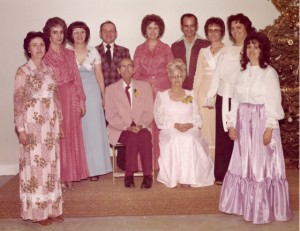 away a stranger in need of a meal, and it seemed there was always a plentiful supply of those strangers and friends who would come for dinner at the Byer house. They were a good team, and truth be told, Grandma Byer was probably just as tough, if not more so than Grandpa Byer, who did have a definite soft spot in his heart for people. Grandpa worked at a number of jobs, but the one I probably heard the most about was the building of Alcova Dam Grandpa had also worked on Kortez Dam and Pathfinder Dam, but my mom, Collene Spencer, who was Grandpa’s middle child, always mentioned to us that her dad had helped build Alcova Dam, every time we drove past it. She was very proud of her dad, and with good reason, because he was very special.
away a stranger in need of a meal, and it seemed there was always a plentiful supply of those strangers and friends who would come for dinner at the Byer house. They were a good team, and truth be told, Grandma Byer was probably just as tough, if not more so than Grandpa Byer, who did have a definite soft spot in his heart for people. Grandpa worked at a number of jobs, but the one I probably heard the most about was the building of Alcova Dam Grandpa had also worked on Kortez Dam and Pathfinder Dam, but my mom, Collene Spencer, who was Grandpa’s middle child, always mentioned to us that her dad had helped build Alcova Dam, every time we drove past it. She was very proud of her dad, and with good reason, because he was very special.
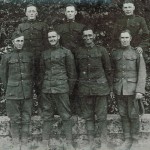 Grandpa served in the Army during World War I as a cook. While he was very brave, and never a man to shirk his duties, I think it would have been hard for this gentle soul to have a military career of killing people. Nevertheless, had the need arisen, he would have done it, because he always knew that he would protect those in his charge. He was a very loyal soldier, and he would never have allowed those he cared about to be killed, if he could stop it. His gentle strength was, for me, his trademark trait. I remember it from my childhood as clearly as if Grandpa Byer were standing right next to me as I write this story. he was the sweetest, kindest, most gentle man anyone could have known. Today would have been my Grandpa Byer’s 126th birthday. Happy birthday in Heaven, Grandpa. We love and miss you very much!!
Grandpa served in the Army during World War I as a cook. While he was very brave, and never a man to shirk his duties, I think it would have been hard for this gentle soul to have a military career of killing people. Nevertheless, had the need arisen, he would have done it, because he always knew that he would protect those in his charge. He was a very loyal soldier, and he would never have allowed those he cared about to be killed, if he could stop it. His gentle strength was, for me, his trademark trait. I remember it from my childhood as clearly as if Grandpa Byer were standing right next to me as I write this story. he was the sweetest, kindest, most gentle man anyone could have known. Today would have been my Grandpa Byer’s 126th birthday. Happy birthday in Heaven, Grandpa. We love and miss you very much!!
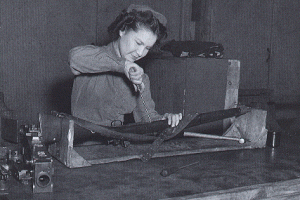
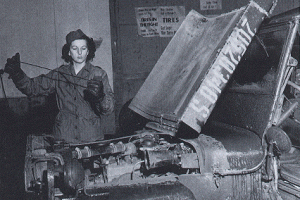 World War II saw many changes in how women were viewed in the normally male-dominated world. With so many men off fighting the war, the women stepped up to do the jobs of riveters in the shipyards, and they stepped up in many other occupations too. If there are no men to do the jobs, someone had to keep the country running, and the United States found out that women were up for the task. I don’t suppose that everyone thought that women could do it, but they simply had no choice. World War II was the largest and most violent armed conflict in the history of mankind. This war taught us, not only about the profession of arms, but also about military preparedness, global strategy, and combined operations in the coalition war against fascism.
World War II saw many changes in how women were viewed in the normally male-dominated world. With so many men off fighting the war, the women stepped up to do the jobs of riveters in the shipyards, and they stepped up in many other occupations too. If there are no men to do the jobs, someone had to keep the country running, and the United States found out that women were up for the task. I don’t suppose that everyone thought that women could do it, but they simply had no choice. World War II was the largest and most violent armed conflict in the history of mankind. This war taught us, not only about the profession of arms, but also about military preparedness, global strategy, and combined operations in the coalition war against fascism.
Prior 1942, the only way for women to be involved in the service was as an Army Nurse, in the Army Nurse Corps, but early in 1941 Congresswoman Edith Nourse Rogers of Massachusetts met with General George C. Marshall, the Army’s Chief of Staff, and told him that she intended to introduce a bill to establish an Army women’s corps, separate and distinct from the existing Army Nurse Corps. Congress approved that bill on May 14, 1942, and the Women’s Army Auxiliary Corps (WAAC) was born. The WAAC bill became law on May 15, 1942. Congressional opposition to the bill centered around southern congressmen. With women in the armed services, one representative asked, “Who will then do the cooking, the washing, the mending, the humble homey tasks to which every woman has devoted herself; who will nurture the children?” These days he would have been run out of Congress for having backward ideas but it was a different time, and one that some women of today truly miss…especially young mothers.
After a long and bitter debate which filled ninety-eight columns in the Congressional Record, the bill finally passed the House 249 to 86. The Senate approved the bill 38 to 27 on May 14. When President Franklin D. Roosevelt signed the bill into law the next day, he set a recruitment goal of 25,000 for the first year. WAAC recruitment topped that goal by November of 1942, at which point Secretary of War Henry L. Stimson authorized WAAC enrollment at 150,000, the original ceiling set by Congress. The day the bill became law, Stimson appointed Oveta Culp Hobby as Director of the WAAC. As chief of the Women’s Interest Section in the Public Relations Bureau at the War Department, Hobby had helped shepherd the WAAC bill through Congress. She had impressed both the media and the public when she testified in favor of the WAAC bill in January. In the words of the Washington Times Herald, “Mrs. Hobby has proved that a competent, efficient woman who works longer days than the sun does not need to look like the popular idea of a competent, efficient woman.” Women would go on to not only become competent and efficient, but requested…sometimes above the men!!
So, what led to the Army’s decision to enlist women during World War II? The answer is simple. The “unfathomable” became reality, as the Army struggled to fulfill wartime quotas from an ever-shrinking pool of candidates. By mid-1943, the Army was simply running out of eligible white men to enlist. The Army could scarcely spare those men already in the service for non-combatant duties. General Dwight D. Eisenhower remarked: “The simple headquarters of a Grant or Lee were gone forever. An Army of filing clerks, stenographers, office managers, telephone operators, and chauffeurs had become essential, and it was scarcely 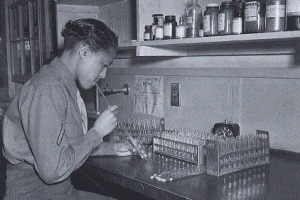
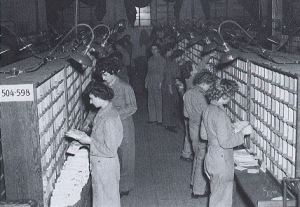 less than criminal to recruit these from needed manpower when great numbers of highly qualified women were available.” While women played a vital role in the success of World War II, their admission into combat roles would not come for many years, and many weren’t sure it was a good idea when it did. The WAC, as a branch of the service, was disbanded in 1978 and all female units were integrated with male units.
less than criminal to recruit these from needed manpower when great numbers of highly qualified women were available.” While women played a vital role in the success of World War II, their admission into combat roles would not come for many years, and many weren’t sure it was a good idea when it did. The WAC, as a branch of the service, was disbanded in 1978 and all female units were integrated with male units.
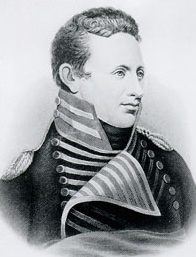 The Louisiana Purchase was the acquisition of the Louisiana territory, which was 828,000 square miles, by the United States from France in 1803. The purchase treaty was signed on April 30, 1803. There were a number of explorers who were anxious to explore the new territory…among them, Lieutenant Zebulon Pike. Pike’s explorations of the newly acquired Louisiana Territory of the United States began before the nation’s first western explorers, Lewis and Clark, had returned from their own expedition up the Missouri River. Pike was more of a professional military man than either Lewis or Clark, and he was a smart man who had taught himself Spanish, French, mathematics, and elementary science. When the governor of Louisiana Territory requested a military expedition to explore the headwaters of the Mississippi, General James Wilkinson picked Pike to lead it.
The Louisiana Purchase was the acquisition of the Louisiana territory, which was 828,000 square miles, by the United States from France in 1803. The purchase treaty was signed on April 30, 1803. There were a number of explorers who were anxious to explore the new territory…among them, Lieutenant Zebulon Pike. Pike’s explorations of the newly acquired Louisiana Territory of the United States began before the nation’s first western explorers, Lewis and Clark, had returned from their own expedition up the Missouri River. Pike was more of a professional military man than either Lewis or Clark, and he was a smart man who had taught himself Spanish, French, mathematics, and elementary science. When the governor of Louisiana Territory requested a military expedition to explore the headwaters of the Mississippi, General James Wilkinson picked Pike to lead it.
Although Pike’s first western expedition had little success, Wilkinson again picked him  to lead a second mission in July 1806 to explore the headwaters of the Red and Arkansas Rivers. This route took Pike across present-day Kansas and into the high plains region that would later become the state of Colorado. As Pike approached the Colorado foothills of the Rocky Mountains during his second exploratory expedition, Lieutenant Zebulon Pike spots a distant mountain peak that looks “like a small blue cloud.” The mountain was later named Pike’s Peak in his honor, but Pike had vastly underestimated the mountain, and the distance to it. He told his men they should be able to walk to the peak, climb it, and return before dinner. Pike and his men struggled through snow and sub-zero temperatures before finally taking shelter in a cave for the night, without even having reached the base of the towering mountain. Pike later pronounced the peak impossible to scale. Little did he know what the future would bring for Pike’s Peak, especially tourism.
to lead a second mission in July 1806 to explore the headwaters of the Red and Arkansas Rivers. This route took Pike across present-day Kansas and into the high plains region that would later become the state of Colorado. As Pike approached the Colorado foothills of the Rocky Mountains during his second exploratory expedition, Lieutenant Zebulon Pike spots a distant mountain peak that looks “like a small blue cloud.” The mountain was later named Pike’s Peak in his honor, but Pike had vastly underestimated the mountain, and the distance to it. He told his men they should be able to walk to the peak, climb it, and return before dinner. Pike and his men struggled through snow and sub-zero temperatures before finally taking shelter in a cave for the night, without even having reached the base of the towering mountain. Pike later pronounced the peak impossible to scale. Little did he know what the future would bring for Pike’s Peak, especially tourism.
 The remainder of Pike’s expedition was as bad as the first part. After attempting for several months to locate the Red River, Pike and his men became hopelessly lost. Were it not for a troop of Spanish soldiers who arrested Pike and his men, they would have most likely died. The soldiers escorted them to Santa Fe, thus providing Pike with an tour of that important region, courtesy of the Spanish military. After returning to the United States, Pike wrote an account of his expedition that won him some fame, but little money. In recognition of his bravery and leadership during the western expeditions, the army appointed him a brigadier general during the War of 1812. He was killed in an explosion during the April 1813 assault on Toronto.
The remainder of Pike’s expedition was as bad as the first part. After attempting for several months to locate the Red River, Pike and his men became hopelessly lost. Were it not for a troop of Spanish soldiers who arrested Pike and his men, they would have most likely died. The soldiers escorted them to Santa Fe, thus providing Pike with an tour of that important region, courtesy of the Spanish military. After returning to the United States, Pike wrote an account of his expedition that won him some fame, but little money. In recognition of his bravery and leadership during the western expeditions, the army appointed him a brigadier general during the War of 1812. He was killed in an explosion during the April 1813 assault on Toronto.
 I originally met my husband’s uncle, Andrew “Butch” Schulenberg at a family reunion about 1980, but really began to feel close to him and Aunt Charlys after my father-in-law, Walt Schulenberg, Butch’s half brother, passed away in 2013. Since that time, my husband, Bob and I have gone to Forsyth to spend time with them and kept in touch on Facebook. In those five years, I can honestly say that he has become a favorite uncle to me. He is very sweet man, and his kind, thoughtful ways have endeared him to me more than he could possibly know. I am so blessed that he is a part of my life.
I originally met my husband’s uncle, Andrew “Butch” Schulenberg at a family reunion about 1980, but really began to feel close to him and Aunt Charlys after my father-in-law, Walt Schulenberg, Butch’s half brother, passed away in 2013. Since that time, my husband, Bob and I have gone to Forsyth to spend time with them and kept in touch on Facebook. In those five years, I can honestly say that he has become a favorite uncle to me. He is very sweet man, and his kind, thoughtful ways have endeared him to me more than he could possibly know. I am so blessed that he is a part of my life.
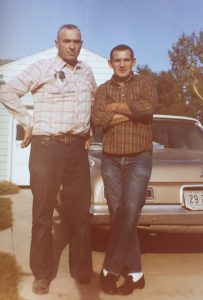 Uncle Butch is the youngest child of his dad, Andrew Schulenberg, who was the sheriff of Rosebud County, Montana from 1955 to 1972. Growing up as the son of the County Sheriff, you would expect that Butch would be an expert in guns, and you would be right, but not for the reason you might think. You see, Butch’s dad was known as the sheriff without a gun. Nevertheless, that didn’t stop Butch from becoming an expert marksman. Butch graduated from high school in Forsyth, Montana, and then attended Northern Montana College in Havre, Montana before joining the Army on September 13, 1963. Part of his time in the Army was spent stationed at Schofield Barracks, Hawaii, as a rifleman in Company A, 1st Battalion of the Division’s 35th Infantry. While there he took part in Exercise West Wind as a part of the assault team in a joint Army-Navy-Marine Corps amphibious operation on the Hawaiian Island of Molokai from April
Uncle Butch is the youngest child of his dad, Andrew Schulenberg, who was the sheriff of Rosebud County, Montana from 1955 to 1972. Growing up as the son of the County Sheriff, you would expect that Butch would be an expert in guns, and you would be right, but not for the reason you might think. You see, Butch’s dad was known as the sheriff without a gun. Nevertheless, that didn’t stop Butch from becoming an expert marksman. Butch graduated from high school in Forsyth, Montana, and then attended Northern Montana College in Havre, Montana before joining the Army on September 13, 1963. Part of his time in the Army was spent stationed at Schofield Barracks, Hawaii, as a rifleman in Company A, 1st Battalion of the Division’s 35th Infantry. While there he took part in Exercise West Wind as a part of the assault team in a joint Army-Navy-Marine Corps amphibious operation on the Hawaiian Island of Molokai from April 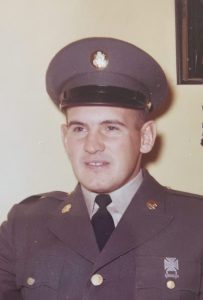 15, 1964 to April 24, 1964. During his time in the Army, Butch became an Expert (Rifle M-14) and Marksman (Rifle).
15, 1964 to April 24, 1964. During his time in the Army, Butch became an Expert (Rifle M-14) and Marksman (Rifle).
Butch had learned to respect the dangers of guns early in his life, a result of the fact that his dad lost his left leg as a result of a hunting accident at the tender age of 14. I don’t believe that Grandpa Andy Schulenberg was afraid of guns, else how could he possibly be the Sheriff of Rosebud County for so many years, but I do believe that he was well aware of what can happen with guns and that he made sure that his children knew that they were not a toy. Nevertheless, he didn’t teach his children to fear guns either. While Butch was an excellent marksman, he was also a great driver, and that caught the attention of his superior officer who chose him to be his driver for much of his time in the service. Butch received an honorable discharge on August 23, 1965. I am very proud of Uncle Butch’s service to his country, and his abilities. Today is Uncle Butch’s 77th birthday. Happy birthday Uncle Butch!! Have a great day!! We love you!!
 These days, patriotism seems to be constantly under fire. The nation has basically taken sides on the issue. There are those who hate this country and all it stands for, and those who love this country despite its faults and any negative historical events. I am a patriot, and it is my belief that history is history, mistakes and all. It can’t be changed by tearing down a few statues, and certainly not by stomping on our flag. The patriots of this time feel the same as the patriots of the Vietnam era…”Our Flag, Love it or Leave.” I find it strange to think that this era is really no different than that era, or any other era of American history, or in fact, in the history of any nation. There are those who love their nation and are loyal to it, and those who tend to blow with the wind…only showing faithfulness when it suits their own agenda. In my opinion and the opinion of every patriot, these people who turn on our country just because things aren’t going their way, are traitors, and should be treated as such.
These days, patriotism seems to be constantly under fire. The nation has basically taken sides on the issue. There are those who hate this country and all it stands for, and those who love this country despite its faults and any negative historical events. I am a patriot, and it is my belief that history is history, mistakes and all. It can’t be changed by tearing down a few statues, and certainly not by stomping on our flag. The patriots of this time feel the same as the patriots of the Vietnam era…”Our Flag, Love it or Leave.” I find it strange to think that this era is really no different than that era, or any other era of American history, or in fact, in the history of any nation. There are those who love their nation and are loyal to it, and those who tend to blow with the wind…only showing faithfulness when it suits their own agenda. In my opinion and the opinion of every patriot, these people who turn on our country just because things aren’t going their way, are traitors, and should be treated as such.
There have been a number of traitors in our nations history, and I’m sure there will be many more, but one of the most famous of them all was Benedict Arnold. On this day in 1780, during the American Revolution, an American General named Benedict Arnold met with a British Major named John Andre to discuss the treasonous act of handing over West Point to the British. In return Arnold was promised of a large sum of money and a high position in the British army. The plot was foiled and Arnold, who was once considered an American hero, became synonymous with the word “traitor.” Benedict Arnold was not always a low life traitor. He was actually 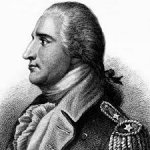 born into a well-respected family in Norwich, Connecticut, on January 14, 1741. He apprenticed with an apothecary and was a member of the militia during the French and Indian War from 1754 to 1763. Later, he became a successful trader and then joined the Continental Army when the Revolutionary War broke out between Great Britain and its 13 American colonies in 1775. When the war ended in 1783, the colonies had won their independence from Britain and formed a new nation…the United States.
born into a well-respected family in Norwich, Connecticut, on January 14, 1741. He apprenticed with an apothecary and was a member of the militia during the French and Indian War from 1754 to 1763. Later, he became a successful trader and then joined the Continental Army when the Revolutionary War broke out between Great Britain and its 13 American colonies in 1775. When the war ended in 1783, the colonies had won their independence from Britain and formed a new nation…the United States.
During the war, Benedict Arnold proved himself a brave and skillful leader, helping Ethan Allen’s troops capture Fort Ticonderoga in 1775 and then participating in the unsuccessful attack on British Quebec later that year, which earned him a promotion to brigadier general. Arnold distinguished himself in campaigns at Lake Champlain, Ridgefield and Saratoga, and gained the support of George Washington. However, Arnold also had some enemies within the military and in 1777, five men of lesser rank were promoted over him. I see that there were those who were not fooled by his presumed loyalty. Over the course of the next few years, Arnold married for a second time. He and his new wife lived a lavish lifestyle in Philadelphia, accumulating a large amount of debt. The debt and the resentment Arnold felt over not being promoted faster were the motivating factors in his decision to become a turncoat.
In 1780, Arnold was given command of West Point, an American fort on the Hudson River in New York, and future home of the United States military academy, which was established in 1802. Arnold contacted Sir Henry 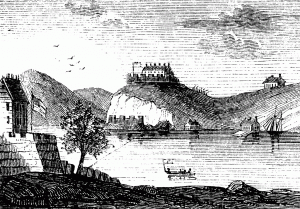 Clinton, head of the British forces, and proposed handing over West Point and his men. On September 21, 1780, Arnold met with Major John Andre and made his traitorous pact. Thankfully, the conspiracy was uncovered and Andre was captured and executed. Arnold, the former American patriot turned traitor, fled to the enemy side and went on to lead British troops in Virginia and Connecticut. He later moved to England, though he never received all of what he’d been promised by the British. He died in London on June 14, 1801, having never realized the greatness he thought he would achieve. Now, when people think of a traitor, they often call them a Benedict Arnold. It is a huge insult to be called that.
Clinton, head of the British forces, and proposed handing over West Point and his men. On September 21, 1780, Arnold met with Major John Andre and made his traitorous pact. Thankfully, the conspiracy was uncovered and Andre was captured and executed. Arnold, the former American patriot turned traitor, fled to the enemy side and went on to lead British troops in Virginia and Connecticut. He later moved to England, though he never received all of what he’d been promised by the British. He died in London on June 14, 1801, having never realized the greatness he thought he would achieve. Now, when people think of a traitor, they often call them a Benedict Arnold. It is a huge insult to be called that.

